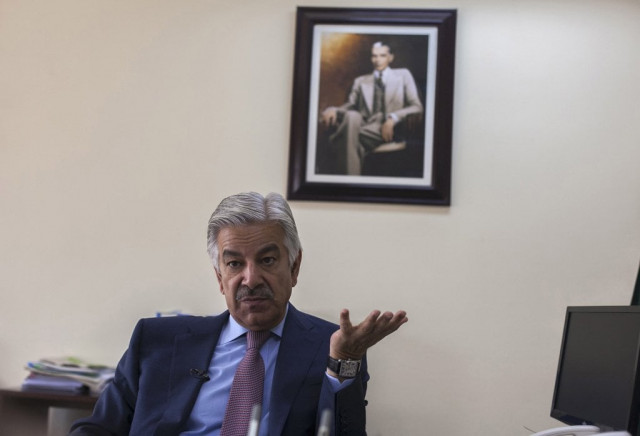To spare domestic consumers in Ramazan, industry must suffer
No load shedding for consumers during sehri, iftar; industry to get eight-hour outages instead

Defence Minister Khawaja Asif. PHOTO: REUTERS
This announcement was made by Water and Power Minister Khawaja Asif in Islamabad on Thursday, following the 15th meeting of the Cabinet Committee on Energy. The minister said that there would be no rolling blackouts from 6.30 pm to 10.30 pm for iftar and taraweeh and for sehri there would be no load-shedding one hour before and one hour after sehri. This rule will be enforced throughout the country, including Karachi.
When asked, Asif confessed that the government would do so by forcing industrial companies across the country to face eight hours of power outages every day during Ramazan. Currently, industrial consumers have been exempted from power outages.
“Whatever electricity will be saved from eight hours of load-shedding in industry will be provided to the domestic consumers,” he said. The minister tried to assure the public that the government would try its best to keep to its word about the Ramazan schedule.
Asif also tried to encourage energy conservation for consumers, pointing out that the more they use, the higher their tariff rates will go up. He refused to take any questions that were not about the Ramazan power outage schedule, even though he had come from a four-hour meeting of the Cabinet Committee on Energy which had gone over a much wider range of issues.
At the meeting, Prime Minister Nawaz Sharif is reported to have expressed his impatience at the slow progress and rising costs of the Neelum-Jhelum power project. He even suggested that the project be privatised or at least bring on a private-sector partner to ensure its timely completion. The CCE agreed to form a committee that would explore this option and report back to the cabinet in three months.
Nawaz made it clear that he wanted the project completed by the first quarter of 2017. That would give it enough time to be able to come on stream and help reduce the burden of power outages before the election in August 2018.
Published in The Express Tribune, June 19th, 2015.



















COMMENTS
Comments are moderated and generally will be posted if they are on-topic and not abusive.
For more information, please see our Comments FAQ